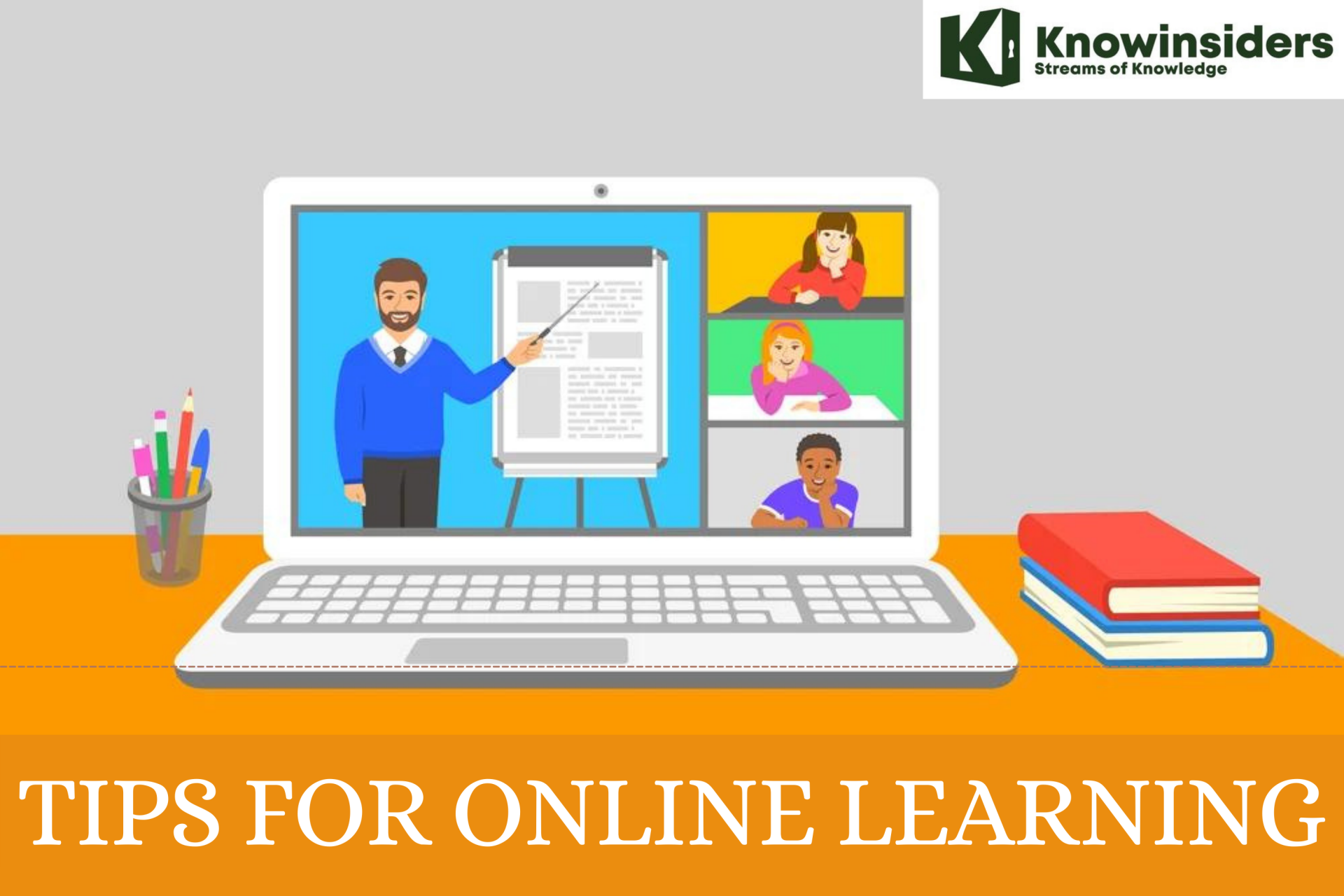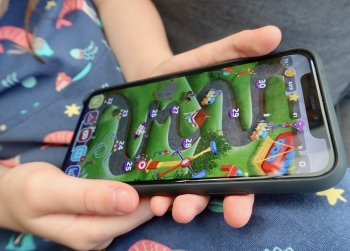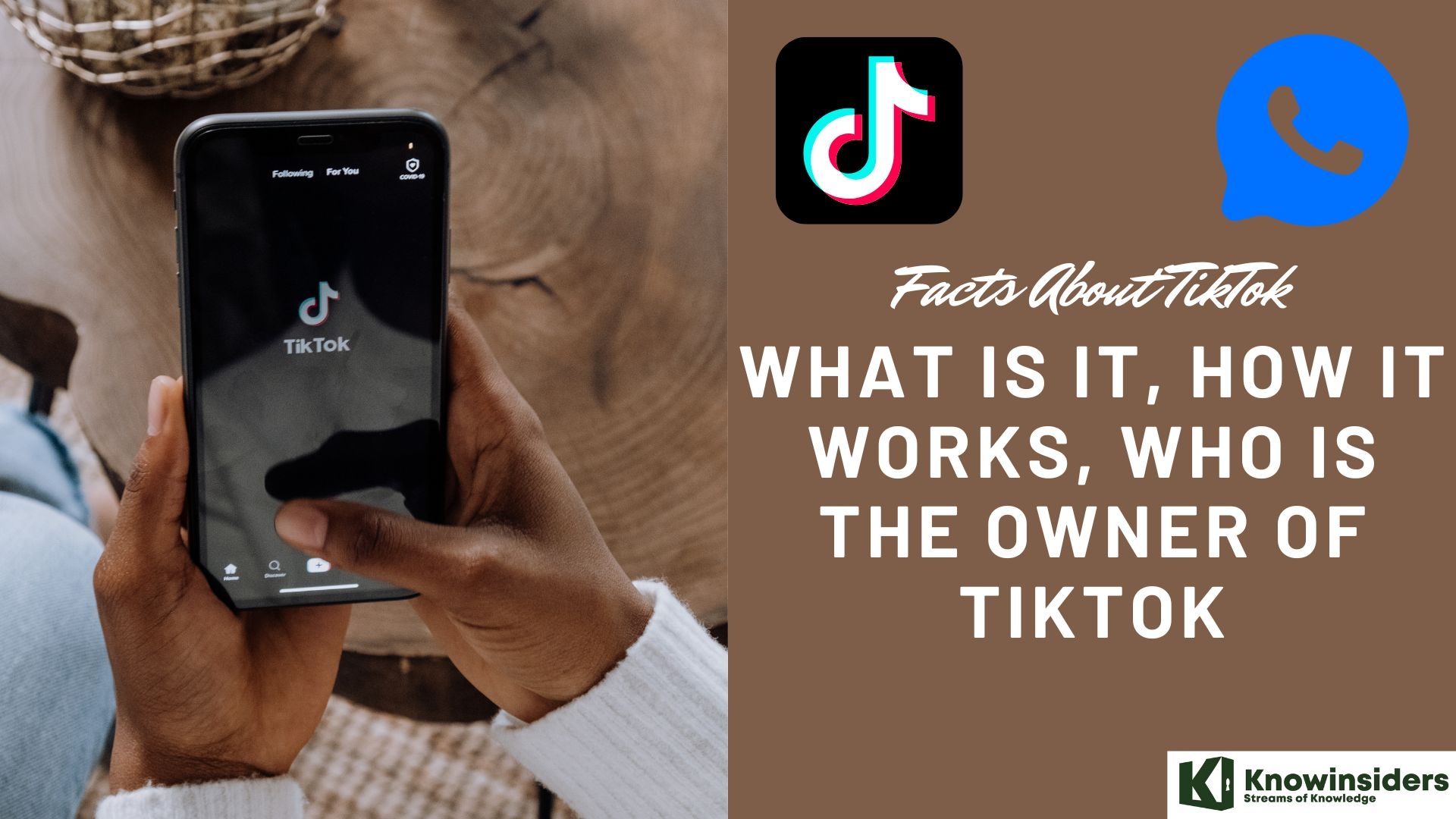What Is Online Education and Changes from The Covid-19 Pandemic?
 |
| What Is Online Education and How Does It Works? |
As the pandemic accelerated, colleges shifted into emergency mode, shutting down campuses in an effort to prevent the spread of COVID-19, and online education is the main method for students nowadays.
Online schooling allows students to learn at home, or wherever there's an internet connection while enjoying the benefits and support of a school program.
As you continue to explore online learning as an option, please make sure to check out this article.
What is Online Education?
Computer-based training, Web-based training, Internet-based training, online training, e-learning (electronic learning), m-learning (mobile learning), computer-aided distance education - online education goes by many names and comes in a variety of styles, but at its core:
“Online education is electronically supported learning that relies on the Internet for teacher/student interaction and the distribution of class materials.”
From this simple definition comes an almost infinite number of ways to teach and learn outside of traditional classrooms and away from college campuses. With online education, students can turn anywhere with Internet access and electricity into a classroom. It can include audio, video, text, animations, virtual training environments, and live chats with professors. It’s a rich learning environment with much more flexibility than a traditional classroom.
When used to its full potential, online education has been shown to be more effective than pure face-to-face instruction. It can be engaging, fun, and tailored to almost anyone’s schedule.
What are Online Education Courses?
There is no doubt to say that these days online education is becoming more popular among students. There are many people who prefer to learn due to its simple accessibility and flexibility of learning at their own pace.
There are lots of courses which are available online but some of them are more attractive courses that are attracting the students and giving them opportunities to gain the skills and prepare them to work in the job market.
Below all the courses, which are available online are mentioned:
- Certificate – 6 months
- Diploma – 1 year
- Bachelor’s Degree – 3 years
- Master’s Degree – 2 years
What are Online Education Programs?
100% Online Education - fully-online degrees are earned from the comfort of your own home with no required visits to your college or university campus.
Hybrid Education - Hybrid education allows students to pursue a combination of online and on-campus courses.
Online Courses - While online courses may be part of a degree program, they can also be taken on their own in order to master a certain subject or learn a specific skill.
MOOCs - MOOCs, or massive open online courses, are usually delivered in lecture form to online "classrooms" with as many as 10,000 people.
It's not easier studying online! Online institutions must meet the same quality requirements as brick-and-mortar institutions. With the advancement of online learning technologies, virtual institutions have enhanced automated processes to deter fraud and/or plagiarism.
No matter which type — or types — of online education one chooses to pursue, the options are typically plentiful. Where online education put down roots in just a handful of college majors, it has since expanded to nearly every field and discipline in academia, with very few exceptions. With that being said, certain fields lend themselves to online learning for various reasons.
Across the nation, the most popular degree programs offered online include:
- Nursing
- Business Administration
- Criminal Justice
- Accounting
- Computer and Information Technology
- Early Childhood Education
How Online Learning Works
 |
| Photo: KnowInsiders |
As an online student, you’ll communicate with classmates and professors in a number of ways including email, discussion boards, blogs, etc. So, before your first day, you’ll want to make sure you have a high-speed internet connection and convenient access to a computer (PC or Mac).
Some courses or assignments may require other types of equipment, such as a webcam or microphone.
When choosing which method of course delivery works best for you, you should consider your schedule, your location, and your study habits.
How Is an Online Classroom Typically Structured?
The structure of an online classroom varies, experts say. But generally, online students regularly log in to a learning management system, or LMS, a virtual portal where they can view the syllabus and grades; contact professors, classmates, and support services; access course materials; and monitor their progress on lessons.
Experts say prospective students should check whether a school's LMS is accessible on mobile devices so they can complete coursework anytime, anywhere. They will also likely need a strong internet connection and any required software, such as a word processor.
One important distinction that experts note is that the forced shift to remote instruction that colleges saw this spring due to the coronavirus is not typical of online education. What students are experiencing in an online format as a result of the pandemic is "emergency remote teaching" says Lynette O'Keefe, director of research and innovation at the Online Learning Consortium.
"Emergency remote teaching forces faculty that have planned their semester in either a face-to-face or blended environment to be carried out fully online, and it forces students that were not necessarily expecting to complete their courses online to do so," O'Keefe says.
What are the differences between Online Courses vs. Traditional?Online courses cover the same material as the classroom version — it is only in the way it's taught that is different. Students say they are equal to or more difficult than classroom-based courses. This is because you must invest the extra time and effort necessary to fully participate in a variety of activities and materials necessary to complete your coursework. Online courses also require you to be very self-disciplined. This is accomplished by using the course materials in a very deliberate order and sequence. These materials may include a text, study guide or course handbook, a media component, and a course map outlining the sequential step-by-step use of the materials. You won't be alone, but how you interact with classmates will be different, such as posting to online discussion boards. Many students report that they actually learn more in online classes and find the experience more rewarding; however online classes are not for everyone. Even if you are an excellent student, you may find that online classes are not compatible with your learning style. |
How has the COVID-19 pandemic changed education?
 |
| Photo: KnowInsiders |
In response to significant demand, many online learning platforms are offering free access to their services, including platforms like BYJU’S, a Bangalore-based educational technology and online tutoring firm founded in 2011, which is now the world’s most highly valued tech company. Since announcing free live classes on its Think and Learn app, BYJU has seen a 200% increase in the number of new students using its product, according to Mrinal Mohit, the company's Chief Operating Officer.
Tencent classroom, meanwhile, has been used extensively since mid-February after the Chinese government instructed a quarter of a billion full-time students to resume their studies through online platforms. This resulted in the largest “online movement” in the history of education with approximately 730,000, or 81% of K-12 students, attending classes via the Tencent K-12 Online School in Wuhan.
Other companies are bolstering capabilities to provide a one-stop-shop for teachers and students. For example, Lark, a Singapore-based collaboration suite initially developed by ByteDance as an internal tool to meet its own exponential growth, began offering teachers and students unlimited video conferencing time, auto-translation capabilities, real-time co-editing of project work, and smart calendar scheduling, amongst other features. To do so quickly and in a time of crisis, Lark ramped up its global server infrastructure and engineering capabilities to ensure reliable connectivity.
Alibaba’s distance learning solution, DingTalk, had to prepare for a similar influx: “To support large-scale remote work, the platform tapped Alibaba Cloud to deploy more than 100,000 new cloud servers in just two hours last month – setting a new record for rapid capacity expansion,” according to DingTalk CEO, Chen Hang.
Some school districts are forming unique partnerships, like the one between The Los Angeles Unified School District and PBS SoCal/KCET to offer local educational broadcasts, with separate channels focused on different ages, and a range of digital options. Media organizations such as the BBC are also powering virtual learning; Bitesize Daily, launched on 20 April, is offering 14 weeks of curriculum-based learning for kids across the UK with celebrities like Manchester City footballer Sergio Aguero teaching some of the content.
Is learning online as effective?
For those who do have access to the right technology, there is evidence that learning online can be more effective in a number of ways. Some research shows that on average, students retain 25-60% more material when learning online compared to only 8-10% in a classroom. This is mostly due to the students being able to learn faster online; e-learning requires 40-60% less time to learn than in a traditional classroom setting because students can learn at their own pace, going back and re-reading, skipping, or accelerating through concepts as they choose.
Nevertheless, the effectiveness of online learning varies amongst age groups. The general consensus on children, especially younger ones, is that a structured environment is required because kids are more easily distracted. To get the full benefit of online learning, there needs to be a concerted effort to provide this structure and go beyond replicating a physical class/lecture through video capabilities, instead, using a range of collaboration tools and engagement methods that promote “inclusion, personalization, and intelligence”, according to Dowson Tong, Senior Executive Vice President of Tencent and President of its Cloud and Smart Industries Group.
Since studies have shown that children extensively use their senses to learn, making learning fun and effective through the use of technology is crucial, according to BYJU's Mrinal Mohit. “Over a period, we have observed that clever integration of games has demonstrated higher engagement and increased motivation towards learning especially among younger students, making them truly fall in love with learning”, he says.
Tips for Effective Online Learning
 |
| Photo: KnowInsiders |
1. Get organized
Keep a calendar, weekly chart, or list of all coursework. Create a regular study and assignment schedule.
2. Make time
Give yourself extra time to complete assignments. Start assignments right away, so if issues come up, you have time to seek clarification.
3. Learn the technology
Read course guides for technology requirements. Watch for instructor emails and course site announcements.
4. Stay in touch
Use your instructor’s virtual office hours, email, or phone; and use classroom discussion forums to build community with your classmates.
5. Be accountable
Set goals and check-in with yourself weekly. Or pair up with a fellow classmate as accountability partners.
6. Get help
Don’t wait until the last minute to reach out. Contact your instructor or a classmate.
7. Avoid multi-tasking
Multi-tasking often ends up causing us to take longer to complete projects. Focus on one task at a time.
8. Take breaks
Take regular breaks from sitting, by standing, stretching, or walking. Unplug for periods during the day to keep a healthy balance.
Is Online Education The Future?The concept of education is changing over the past few years. Traditional classrooms are converting into online education. It is not necessary to attend traditional classes or regular classes to learn skills and courses. With the invention of new technologies and the use of the massive source called the internet, it becomes easier to learn anything from anywhere. According to a survey many students are enrolling in higher-level studies or diploma courses and you would not believe that 30% of students are pursuing these courses through online education and they find online education more effective and time-saving than the traditional education method. Online education results in sensible choices whether you are a student or a working professional. As a working professional through online education, you can sharpen your skills and become more professional in your field without affecting your current job. Thus, the positive response of online education can make it the future of education. |
 Best Inspirational Motivating Quotes and Messages about Education Best Inspirational Motivating Quotes and Messages about Education Sometimes you need something really smart to say to inspire and motivate yourself and those around you. Being a teacher helps you have more motivation ... |
 Top 7 Educational Games for 7 year-old Kids Top 7 Educational Games for 7 year-old Kids When it comes to finding great apps for kids 7-year-olds, you must look for apps that they will actually spark their interest and keep them ... |
 Best Educational Games for 6 Year old Kids Best Educational Games for 6 Year old Kids You do not know which educational games are best for your kids who are 6 years old. That is the reason why you should not ... |


























